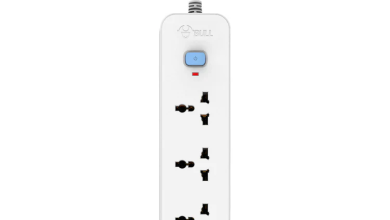How Cookie Consent Mitigates Choice Paralysis in Personalized Search

The contemporary digital marketplace presents consumers with an unprecedented volume of options. This abundance, while seemingly beneficial, frequently leads to a phenomenon known as choice paralysis, where the sheer number of alternatives hinders the decision-making process and ultimately impedes conversions. Users spend excessive time navigating extensive product listings, detracting from the core objective of identifying and acquiring desired items.
Personalized search offers a strategic solution to this challenge. Its efficacy, however, is intrinsically linked to user consent regarding data utilization, commonly facilitated through cookie acceptance. Personalized search transcends basic keyword matching by employing user data to refine search results, presenting a more relevant and focused selection.
Strategic Filtering: Personalized Search in Action
Personalized search directly addresses choice paralysis through several key mechanisms:
- Prioritized Relevance: Instead of a broad spectrum of results loosely aligned with a query, personalization algorithms prioritize items based on a user’s historical interactions, including past purchases, browsing behavior, saved items, and explicitly stated preferences. This immediately reduces the cognitive load associated with sifting through irrelevant options.
- Preference Reinforcement: Familiar and favored brands or product categories, identified through user data, are strategically highlighted. This reduces the need for extensive evaluation of unfamiliar alternatives, streamlining the decision process.
- Predictive Discovery: Sophisticated personalization engines analyze user patterns to anticipate future needs and preferences. This enables the presentation of relevant suggestions for items a user may not have explicitly searched for, fostering efficient discovery.
- Granular Refinement: Personalized systems often provide intelligent, user-centric filters informed by collected data. This allows for precise narrowing of results based on attributes relevant to the individual user, enhancing efficiency compared to generic filtering options.
Tangible Business Benefits
The implementation of personalized search, underpinned by informed cookie consent, yields significant business advantages:
- Reduced Decision Fatigue: By minimizing the exposure to irrelevant options, personalized search conserves user cognitive resources, leading to a more positive and less taxing online experience.
- Increased Purchase Confidence: When users are presented with options aligned with their established preferences, their confidence in their selections increases, reducing purchase hesitancy.
- Accelerated Conversion Rates: The streamlined search and discovery process facilitated by personalization enables users to find desired items more rapidly, directly contributing to improved conversion metrics.
- Enhanced Customer Satisfaction: A more relevant and less overwhelming online experience fosters greater customer satisfaction and strengthens brand loyalty.
In conclusion, while cookie consent is often perceived solely through the lens of user tracking, its strategic importance in enabling personalized search to mitigate choice paralysis is paramount. For businesses, leveraging this consent to deliver tailored search experiences translates to a more efficient user journey, increased conversion rates, and ultimately, a stronger bottom line. Personalized search, fueled by user data, is not merely a convenience; it is a critical tool for optimizing the user experience in an increasingly crowded digital landscape




